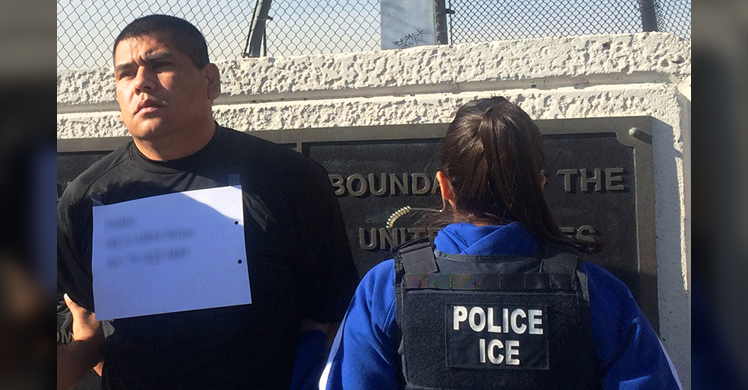Archived Content
In an effort to keep ICE.gov current, the archive contains content from a previous administration or is otherwise outdated. This information is archived and not reflective of current practice.
ICE removes Mexican man wanted for involvement in homicide
COAHUILA, Mexico — A 38-year-old man wanted in Mexico for his involvement in a homicide was removed and handed over to Mexican authorities Monday by U.S. Immigration and Customs Enforcement’s (ICE) Enforcement Removal Operations (ERO) officers from El Paso, Texas.
Pablo Alvaro Silos allegedly participated in the murder of a victim who died as a result of gunshot wounds. According to police reports, on April 23, 2002, three individuals, including Alvaro Silos, were at a hamburger stand in Torreon waiting for their hamburgers when they got into an argument with the victim. Alvaro Silos and one of his accomplices allegedly punched and kicked the victim several times while the third accomplice shot the victim two times. The victim died at the scene.
Alvaro Silos first entered the United States illegally in June 2001 near San Ysidro, California, without admission or parole. After serving several criminal sentences for various crimes, ICE removed him on May 9, 2006. He later illegally re-entered the country and was again sentenced for criminal acts that included re-entry after being previously removed.
Alvaro Silos later applied for immigration relief, but was found ineligible by an immigration judge. On Nov. 14, a judge ordered his removal from the United States.
In fiscal year 2013, ICE conducted 368,644 removals nationwide. Nearly 60 percent of ICE's total removals had been previously convicted of a criminal offense; 82 percent of individuals removed from the interior of the United States had previously been convicted of a criminal offense.


